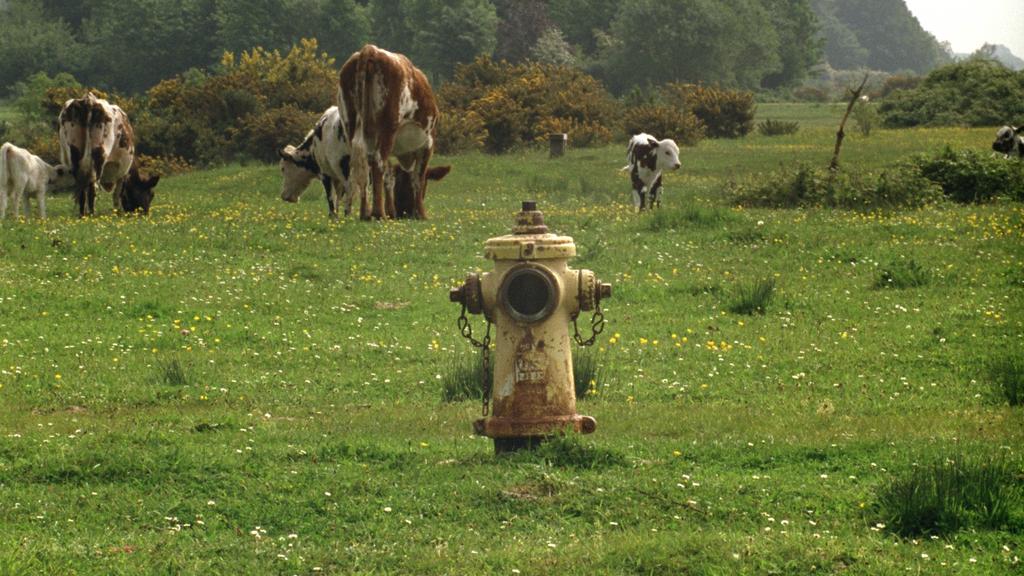Film as an Examination of Space – On Patrick Keiller's View From the Train


Robinson in Ruins
Patrick Keiller's collection of essays, The View From the Train, gathered attention last week: in a review written on Fandor, Tomas Hachard notes that Keiller quietly subverts our conception of film, displacing it from an “examination of time” to “an examination of space.” A space bears the marks of the stories that unraveled there, shaping it – stories that Keiller’s films attempt to uncover and his essays to explicate. Hachard writes:
… the most radical explication of Keiller’s vision of the world [is] one in which history and personal narratives are best deciphered by examining the spaces that contain them. As Keiller’s narrator says in Robinson in Ruins, repeating a phrase from London: “Robinson had once said he believed that, if he looked at the landscape hard enough, it would reveal to him the molecular basis of historical events."
...This visual material deliberately depicts places that are nearly or altogether devoid of human presence and activity, but which because of this absence are suggestive of what could happen, or what might have happened. … The aim is to depict the place as some sort of historical palimpsest, and/or the corollary of this, an exposition of a state of mind.
In The View From the Train Keiller shows how in cinema, landscape and cities are filmed so that they reveal or emphasize the plot and characters, a fact that often goes unseen. Hachard notes some of these instances, from Jia Zhangke’s films to Before Midnight, to, most prominently, Keiller's own essay films, "The Robinson Trilogy". This testifies to the transformative nature of cinema, which attempts to reveals a dimension of space that in life, we experience quite differently. Hachard writes, quoting Keiller:
“Most of us spend much of our time in spaces made and previously occupied by other people, usually people of the more or less distant past. We might reasonably expect our everyday surroundings to feel haunted but, by and large, they don’t. Haunting is still relatively unusual.” So begins “The Robinson Institute,” Keiller’s best essay in The View from the Train. But his films in many ways put a lie to what he writes. They are, after all, documents of how haunted our world actually is, proof of Oscar Wilde’s dictum from The Picture of Dorian Gray, quoted by Keiller in one of his essays: “It is only shallow people who do not judge by appearances. The true mystery of the world is the visible, not the invisible.”
Visit Fandor to read the review in full.